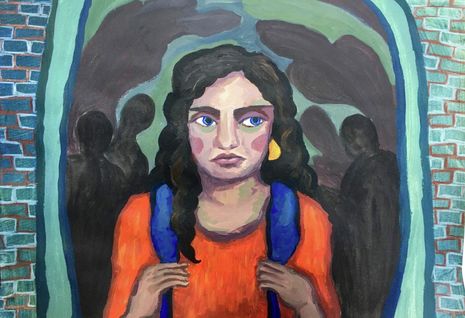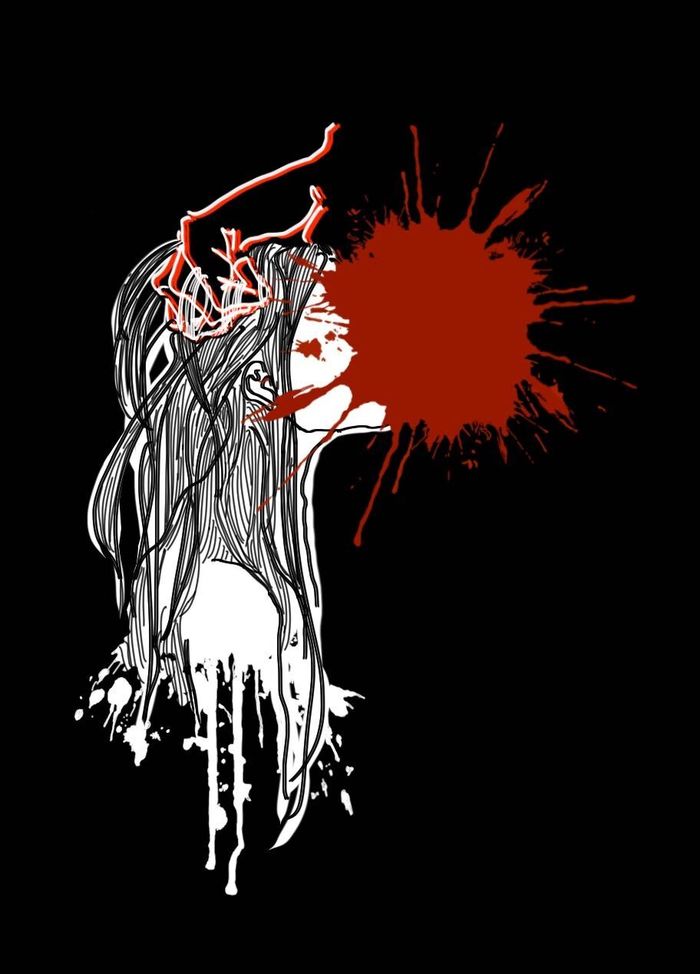“I’m not alright, and I’m not your darling”: what we are failing to see
Lola Miller writes on her experience of sexual assault and harassment

Content note: discussion of sexual assault and harassment.
When I was twelve, a boy my age pushed me up against a wall, groped across my chest and tried to put his hands down my pants. For a while, I didn’t tell anyone; I was embarrassed. In that same year, a boy in the school corridor groped my chest. He had the audacity to laugh: ‘Grow some tits, you flat-chested freak’. I told my friends on the bus home. We were twelve, and we laughed. We were children and had already been taught that sexual abuse is something to joke about: it’s funny.
I am twenty-one now, and I do not find humour in this anymore.
‘You alright darling?’ A man steps into my path and blows me a kiss as I jog past. Usually I’d retaliate, give him the finger, but the street is empty so I can’t risk making him angry. I’m pretty sure I could outrun him, but today I don’t fancy receiving verbal abuse.
Later, a man on the highstreet calls after me: ‘How are you?’. I smile and nod - don’t have the energy to be angry every time. He adds ‘where are you going? I’ll come with you’, jogging after me. I meet a male friend on the beach and tell him that I have been harassed three times today.
‘How come I never see this?’ He asks. He isn’t doubting my experiences - I think - but he just doesn’t see it happen. I suggest that maybe, when I’m with him, other men are less likely to target me.
This suggestion proves untrue in the very same evening. We stand at a crossroads, and a man hollers at me. My friend doesn’t notice. When I ask him if he saw, he is astounded. ‘What? He was shouting at you?’. I look at him, and for a moment I feel a cold rage begin to rise in my stomach. The wave crests and ebbs away, as I remind myself that this is not his fault. He really did not see. As countless other, wonderful men in my life, simply do not see.
“As a white, cisgender woman, I am less at risk than many other women.”
As a white, cisgender woman, I am less at risk than many other women. Black trans women are particularly at risk, as shown by the recent deaths of Riah Milton and Dominique Fells. Harassment is not a compliment; it is borne out of prejudice, out of power. Those who are disadvantaged under intersecting power structures likely experience more harassment, more danger, than I do, and are likely less heard than I. And yet even I, with all the privilege I carry, am regularly appalled by what is not seen by the men around me.
Last year I cycled into town with my best friend, and a car pulled up. A group shouted obscenities and then sped off. My friend asked ‘did you know them?’.
‘No’. I caught my breath. ‘That was just men’.
Last week, I was cycling along a deserted stretch of Brighton beach with my Dad. A little way behind, I noticed a man standing alone, facing us. He intently watches Dad go past, and then turns his eyes to me. And then he gets his cock out.
"By exposing himself, that man is telling me that he can humiliate me, he can make me turn away."
I continue pedalling, very much taken aback. What does that man expect me to do? I’m not about to throw myself off the bike and into his arms, crying ‘Oh please sir, that is such a nice penis, I would very much like to have wild and passionate sex with you’. It’s not a come on. It’s an act of power. By exposing himself, that man is telling me that he can humiliate me, he can make me turn away. He can make me feel small. It takes me a moment to clock that I’ve just been a victim of a sexual offence.
Minutes later, a group of teenage boys pass Dad, and then come directly at me, attempting to drive me off the road. Dad does not see. They are young, they are being stupid, and - by the smell of them - they have definitely smoked too much weed to be cycling. I tell myself all of this, but my eyes are smarting. I am sickened because, cycling behind my Dad, I have seen these men pass over him, and then select me as their target.
I am tired of men trying to scare me.
I am tired of asking my friends to text me when they get home, to call after their date. I am tired of my beautiful friends, one after another, telling me that they have actually experienced the thing that we all dread, that thing that makes us walk home keys in hand. And I am tired of the men surrounding me genuinely missing these routines, which I have been taught are the simple facts of life. This is what I, and countless other women, steel ourselves against day in, day out. This is what we have been taught to expect.
This is what you do not see.
 News / Caius mourns its tree-mendous loss23 December 2025
News / Caius mourns its tree-mendous loss23 December 2025 News / Cambridge welcomes UK rejoining the Erasmus scheme20 December 2025
News / Cambridge welcomes UK rejoining the Erasmus scheme20 December 2025 News / CUP announces funding scheme for under-represented academics19 December 2025
News / CUP announces funding scheme for under-represented academics19 December 2025 News / King appoints Peterhouse chaplain to Westminster Abbey22 December 2025
News / King appoints Peterhouse chaplain to Westminster Abbey22 December 2025 Interviews / Politics, your own way: Tilly Middlehurst on speaking out21 December 2025
Interviews / Politics, your own way: Tilly Middlehurst on speaking out21 December 2025








